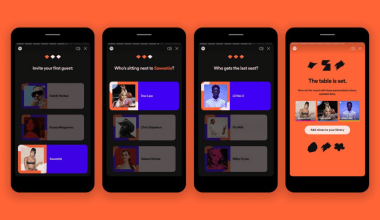Let’s start with a simple question: What is a raconteur? A raconteur is someone who tells stories, but not just any storyteller. They are the kind of people who can make you sit up and listen, laugh, or even cry with the way they tell a story. Think about your favorite teacher who made history feel like an exciting movie or a friend who can turn a simple trip to the grocery store into a hilarious adventure. That’s a raconteur.
Storytelling is one of the oldest ways humans have connected with each other. Long before we had books, movies, or podcasts, people sat around fires and told stories. These stories weren’t just entertainment—they were a way to share experiences, teach lessons, and build communities. And the people who told these stories well, the raconteurs, became the heart of their communities.
What Makes a Raconteur Special?
Not everyone who tells a story is a raconteur. There’s a special skill involved in being able to captivate an audience. A raconteur has a way with words, a sense of timing, and the ability to make every detail interesting.
Key Traits of a Raconteur:
- You Feel Something: Whether it’s laughter, curiosity, or even tears, a raconteur knows how to connect with your emotions.
- Know Their Audience: They can adapt their stories depending on who’s listening.
- They Add Their Own Style: A raconteur can take an everyday event and make it feel extraordinary.
- They Are Great Observers: They notice small details about people and events, which makes their stories rich and relatable.
A Journey Through Time: The History of Storytelling
Long, Long Ago
Thousands of years ago, before books and the internet, storytelling was the main way people shared information. Elders in tribes told stories about gods, heroes, and the history of their people. These stories were passed down from one generation to another.
For example, in India, stories like the Ramayana and Mahabharata have been told for thousands of years. In ancient Greece, storytellers like Homer shared epic tales like the Iliad and the Odyssey. The ability to remember and tell these long, detailed stories made these early raconteurs highly respected.
The Written Word Changes Everything
When writing was invented, storytelling became even more powerful. Now, stories could travel across time and space. People could read stories that were written hundreds of years ago, like Shakespeare’s plays or fairy tales from different cultures.
Modern Storytelling
Today, storytelling happens in many ways—books, movies, podcasts, and even Instagram stories. But the essence remains the same. A good raconteur can still make you forget about everything else and dive into their world, even if it’s just for a few minutes.
Why Do We Love Stories So Much?
Imagine a world without stories. No books, no movies, no jokes shared with friends. Life would be boring, right? Stories are more than entertainment—they help us understand the world and ourselves.
- They Teach Us: Stories often come with lessons, even if we don’t notice them right away. Fairy tales, for example, teach kids about bravery and kindness.
- Help Us Connect: A story about someone’s struggles can make us feel less alone in our own challenges.
- They Inspire Us: Stories about heroes overcoming difficulties can give us hope and courage.
- They Make Us Laugh: Sometimes, all we need is a funny story to brighten our day.
Famous Raconteurs Who Changed the World
Mark Twain
Mark Twain was not just an author but a brilliant raconteur. He had a sharp sense of humor and could make even the simplest stories unforgettable. His books, like The Adventures of Tom Sawyer, are still loved today.
Maya Angelou
Maya Angelou used her voice to tell powerful stories about her life and the world around her. She made people think deeply about important issues like equality and kindness.
Steve Jobs
Even though he was a businessman, Steve Jobs was also a modern raconteur. He knew how to tell a story about his products in a way that made people excited to buy them.
Raconteurs in Everyday Life
You don’t have to be famous to be a raconteur. Think about the people in your life who are great at telling stories. Maybe it’s your grandfather who talks about his childhood, or your friend who always has a funny story to share. These everyday raconteurs make our lives richer.
The Digital Age of Storytelling
In today’s world, technology has opened up new ways to tell stories. You don’t need to be on a stage or write a book to share your stories anymore. Social media, podcasts, and YouTube have made it easy for anyone to become a raconteur.
Podcasts
Podcasts are like radio shows you can listen to anytime. They are perfect for storytelling. Shows like The Moth feature people sharing real-life stories that are funny, emotional, or just plain fascinating.
Platforms like Instagram and TikTok are full of mini-stories. People share snippets of their lives, often with humor and creativity. It’s storytelling, but in a shorter, faster format.
How to Become a Raconteur
Being a raconteur isn’t just about being naturally gifted. It’s a skill you can learn. Here are some tips:
- Start Small: Share simple stories with your family or friends.
- Focus on Details: Notice little things that make a story interesting, like how someone laughed or a funny coincidence.
- Practice: The more you tell stories, the better you’ll get.
- Listen to Others: Pay attention to how good storytellers keep their audience hooked.
- Be Yourself: Your unique personality is what makes your storytelling special.
Raconteurs in Business and Marketing
Even in the world of business, storytelling is a powerful tool. Companies use stories to connect with their customers. For example, brands like Apple and Coca-Cola don’t just sell products—they sell stories about innovation and happiness.
The Timeless Magic of Raconteurs
The art of storytelling will never go out of style. Whether it’s around a campfire, on a stage, or through a smartphone, stories are what bring us together. They make us laugh, cry, and dream.
If you’ve ever told a story and seen someone smile or nod along, congratulations—you’re already a raconteur in the making!
Final Thoughts:
Raconteurs remind us of the magic in everyday life. Their stories make the ordinary extraordinary and keep us connected to the people and world around us. So, go ahead—start sharing your own stories. You never know whose day you might brighten.
Related Articles:
For further reading, explore these related articles:
- Dive Into the World of Sensual Songs: Music That Moves Your Soul
- Geri Halliwell: The Inspiring Journey of a Spice Girl Who Changed the World
For additional resources on music marketing and distribution, visit DMT RECORDS PRIVATE LIMITED.






